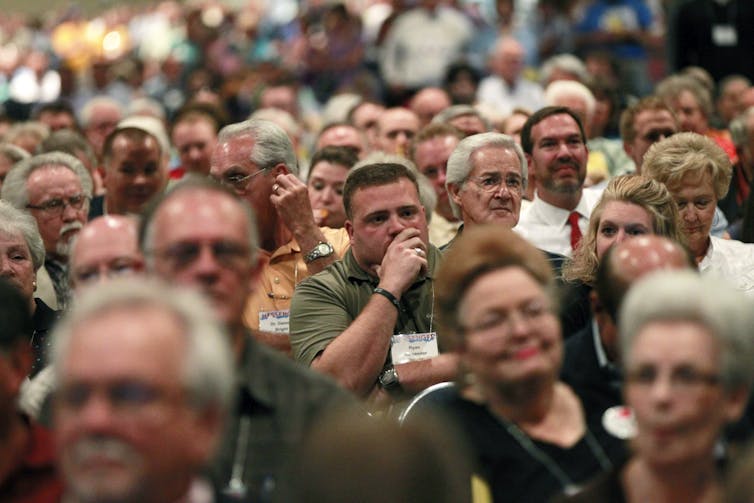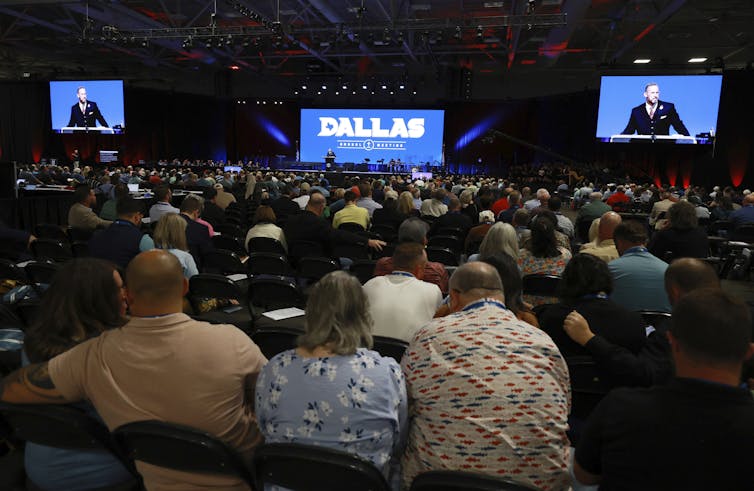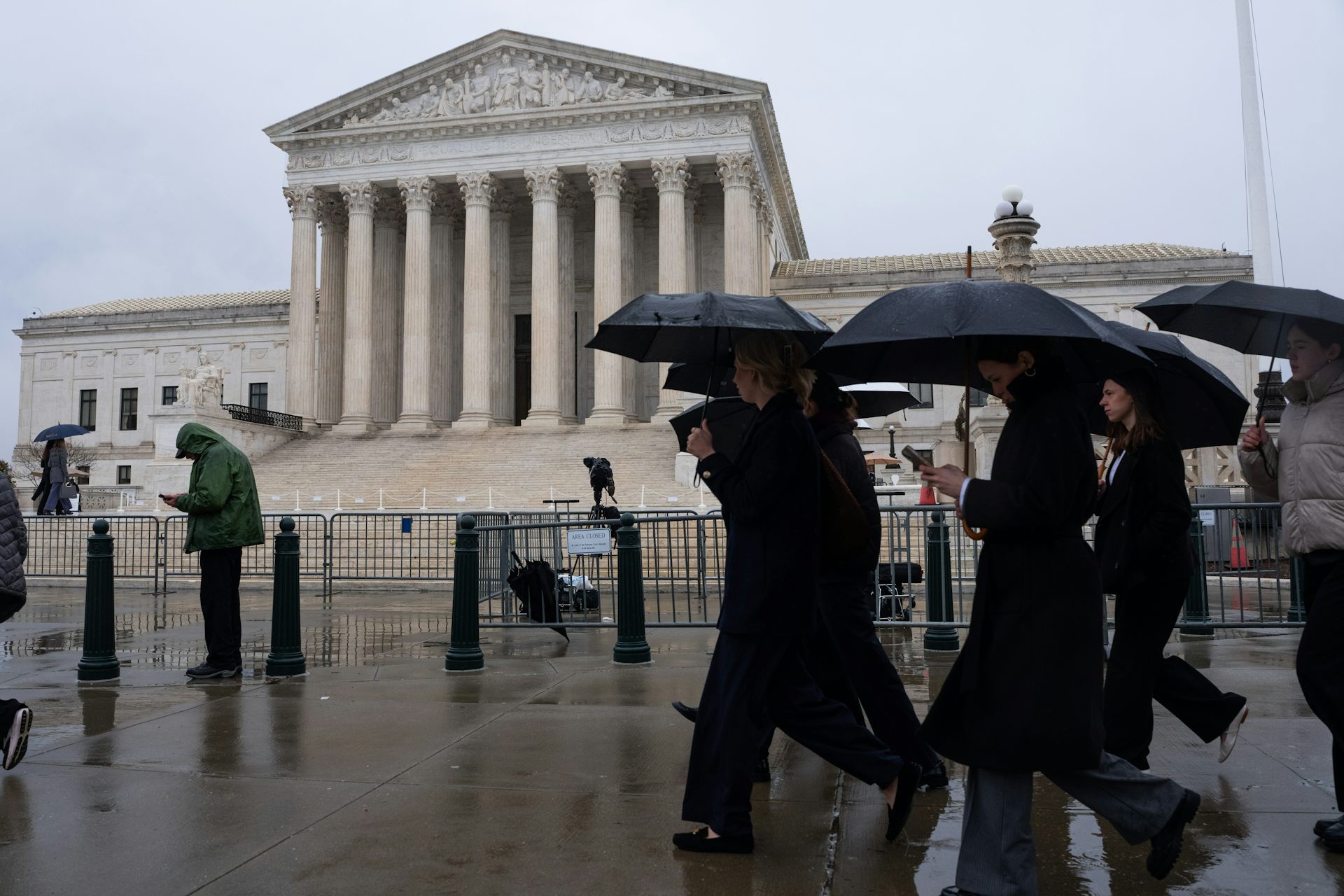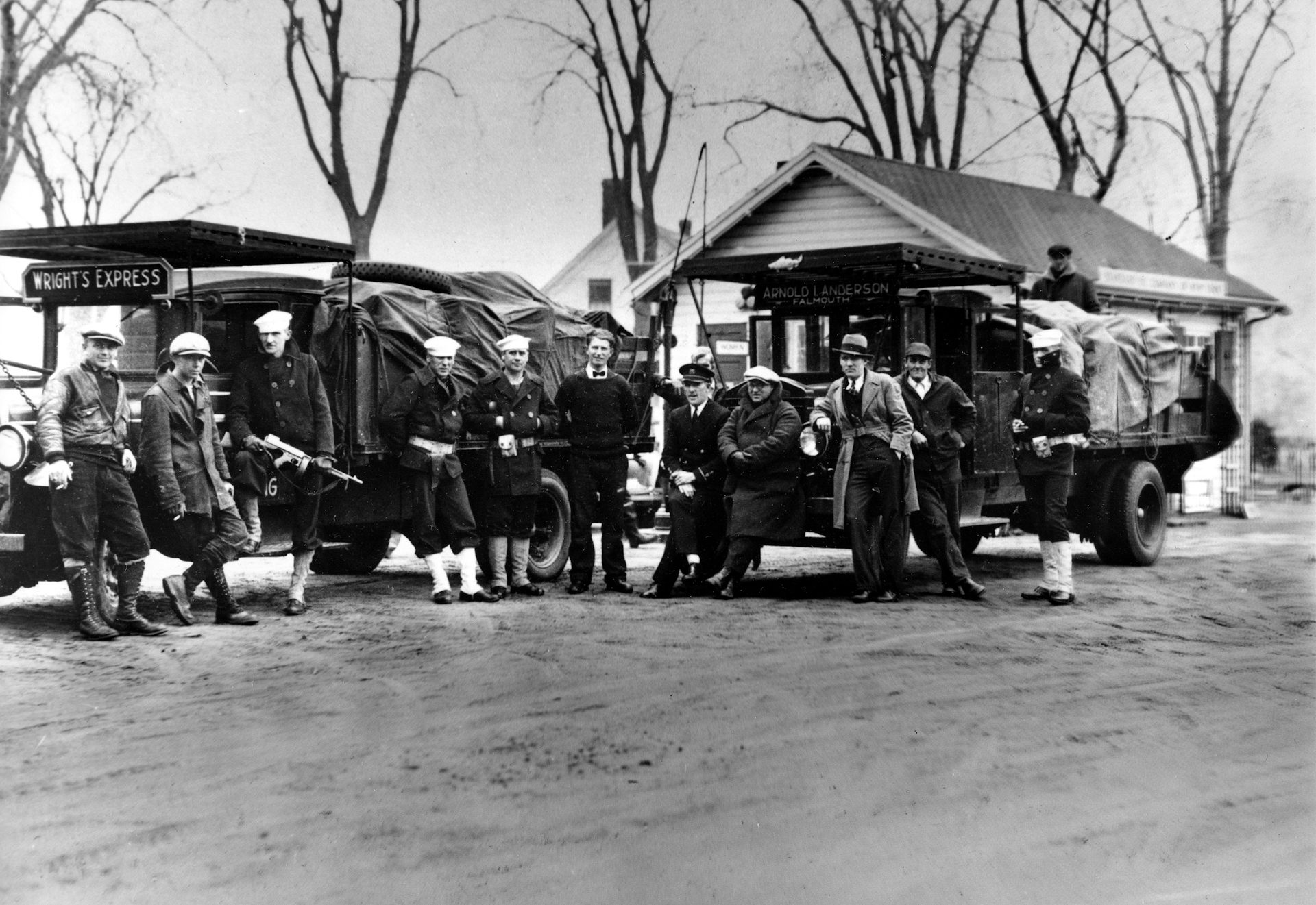Southern Baptists’ call for the US Supreme Court to overturn its same-sex marriage decision is part
Over the years, the Southern Baptist Convention has spoken out against many efforts to advance LGBTQ rights, writes a scholar who studies Southern Baptists.

The Southern Baptist Convention has lost 3.6 million members over the past two decades and faces an ongoing sexual abuse crisis. At its June 2025 annual meeting, however, neither of those issues took up as much time as controversial social issues, including the denomination’s stance on same-sex marriage.
The group called for the overturning of Obergefell v. Hodges – the Supreme Court decision that legalized same-sex marriage – and the creation of laws that “affirm marriage between one man and one woman.”
Messengers – Southern Baptists’ word for delegates from local churches – also asked for laws that would “reflect the moral order revealed in Scripture and nature.”
They also decried declining fertility rates, commercial surrogacy, Planned Parenthood, “willful childlessness,” the normalization of “transgender ideology,” and gender-affirming medical care.
This detailed list targeting women’s and LGBTQ+ rights was justified by an appeal to a God-ordained created order, as defined by Southern Baptists’ interpretation of the Bible.
In this created order, sex and gender are synonymous and are irrevocably defined by biology. The heterosexual nuclear family is the foundational institution of this order, with the father dominant over his wife and children – and children are a necessity if husbands and wives are to be faithful to God’s design for the family.
The resolution, On Restoring Moral Clarity through God’s Design for Gender, Marriage, and the Family, passed easily in a denomination that was taken over from more moderate Southern Baptists by fundamentalists in the early 1990s, largely in response to women’s progress in society and in the denomination.
Southern Baptists were always conservative on issues of gender and sexuality. As I was entering a Southern Baptist seminary in the early 1980s, the denomination seemed poised to embrace social progress. I watched the takeover firsthand as a student and then as a professor of women and gender studies who studies Southern Baptists. This new resolution is the latest in a long history of Southern Baptist opposition to the progress of women and LGBTQ+ people.
Opposing LGBTQ+ rights
Throughout the late 1960s and early 1970s, many Southern Baptists began to embrace the women’s movement. Women started to attend Southern Baptist seminaries in record numbers, many claiming a call to serve as pastors. While Southern Baptist acceptance of LGBTQ+ people lagged far behind its nascent embrace of women’s rights, progress did seem possible.
Then in 1979, a group of Southern Baptist fundamentalists organized to wrest control of the denomination from the moderates who had led it for decades.
Any hope for progress on changes regarding LGBTQ+ rights in the denomination quickly died. Across the next two decades, advances made by women, such as being ordained and serving as senior pastors, eroded and disappeared.
The SBC had passed anti-gay resolutions in the 1970s defining homosexuality as “deviant” and a “sin.” But under the new fundamentalist rule, the SBC became even more vehemently anti-gay and anti-trans.
In 1988, the SBC called homosexuality a “perversion of divine standards,” “a violation of nature and natural affections,” “not a normal lifestyle,” and “an abomination in the eyes of God.”
In 1991, they decried government funding for the National Lesbian and Gay Health Conference as a violation of “the proper role and responsibility of government” because of its encouragement of “sexual immorality.”
Predictably, across the years, the convention spoke out against every effort to advance LGBTQ+ rights. This included supporting the Boy Scouts’ ban of gay scouts, opposing military service by LGBTQ+ people, boycotting Disney for its support of LGBTQ+ people, calling on businesses to deny LGBTQ+ people domestic partner benefits and employment nondiscrimination to protect LGBTQ+ people, and supporting the Defense of Marriage Act that limited marriage to a woman and a man.
Targeting same-sex marriage
The gender and sexuality topic, however, that has received the most attention from the convention has been marriage equality. Since 1980, the SBC has passed 22 resolutions that touch on same-sex marriage.
The SBC passed its first resolution against same-sex marriage in 1996 after the Hawaii Supreme Court indicated the possibility it could rule in favor of same-sex marriage. The court never decided the issue because Hawaii’s Legislature passed a bill defining marriage as between a man and a woman.
In 1998, the convention amended its faith statement, the Baptist Faith and Message, to define marriage as “the uniting of one man and one woman in covenant commitment.”
The denomination passed its next resolution in 2003 in response to the Vermont General Assembly’s establishment of civil unions. The resolution opposed any efforts to validate same-sex marriages or partnerships, whether legislative, judicial or religious.
In 2004, after the Massachusetts Supreme Court allowed same-sex marriages in that state, the convention called for a constitutional amendment to define marriage as between a man and a woman. It reiterated this call in 2006.
When the California Supreme Court struck down the state’s ban on same-sex marriage, the SBC passed another resolution in 2008 warning of the dire consequences of allowing lesbians and gay men to marry, as people from other states would marry in California and return home to challenge their states’ marriage bans.
In 2011, the convention offered its support for the Defense of Marriage Act, followed in 2012 by a denunciation of the use of civil rights language to argue for marriage equality.

The resolution argues that homosexuality “does not qualify as a class meriting special protections, like race and gender.”
When Obergefell was before the Supreme Court, the SBC called on the court to deny marriage equality. After Obergefell was decided in favor of same-sex marriage, the convention asked for Congress to pass the First Amendment Defense Act, which would have prohibited the federal government from discriminating against people based on their opposition to same-sex marriage. That same resolution also offers its support to state attorneys general challenging transgender rights.
Opposing transgender people

This was not the first time the SBC had spoken about transgender issues. As early as 2007, the denomination expressed its opposition to allowing transgender people to constitute a protected class in hate crimes legislation.
In 2014, the convention stated its belief that gender is fixed and binary and subsequently that trans people should not be allowed gender-affirming care and that government officials should not validate transgender identity.
In 2016, the denomination opposed access for transgender people to bathrooms matching their gender identities. In 2021, the convention invoked women’s rights – in a denomination famous for its resistance to women’s equality – as a reason to undermine trans rights.
In its resolution opposing the proposed Equality Act, which would have added sexual orientation and gender identity as protected classifications, the SBC argued, “The Equality Act would undermine decades of hard-fought civil rights protections for women and girls by threatening competition in sports and disregarding the privacy concerns women rightly have about sharing sleeping quarters and intimate facilities with members of the opposite sex.”
This most recent resolution from June 2025 returns to the themes of fixed and binary gender, a divinely sanctioned hierarchical ordering of gender, and marriage as an institution limited to one woman and one man. While claiming these beliefs are “universal truths,” the resolution argues that Obergefell is a “legal fiction” because it denies the biological reality of male and female.
Going further, this resolution claims that U.S. law on gender and sexuality should be based on the Bible. The duty of lawmakers, it states, is to “pass laws that reflect the truth of creation and natural law – about marriage, sex, human life, and family – and to oppose any law that denies or undermines what God has made plain through nature and Scripture.”
By taking no action on sexual abuse while focusing its efforts on issues of gender and sexuality, the convention affirmed its decades-long conservative trajectory. It also underlined its willingness to encourage lawmakers to impose these standards on the rest of the nation.
Susan M. Shaw does not work for, consult, own shares in or receive funding from any company or organization that would benefit from this article, and has disclosed no relevant affiliations beyond their academic appointment.
Read These Next
Supreme Court rules against Trump’s emergency tariffs – but leaves key questions unanswered
The ruling strikes down most of the Trump administration’s current tariffs, with more limited options…
After a 32-hour shift in Pittsburgh, I realized EMTs should be napping on the job
A paramedic and university professor shares data about how strategic napping could help his own health…
How Dracula became a red-hot lover
Count Dracula was originally a rank-breathed predator. His transformation into a tragic romantic mirrors…






